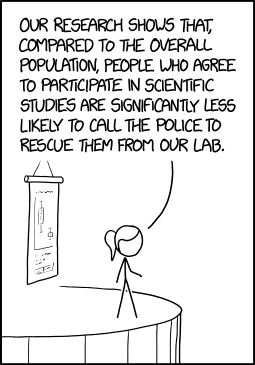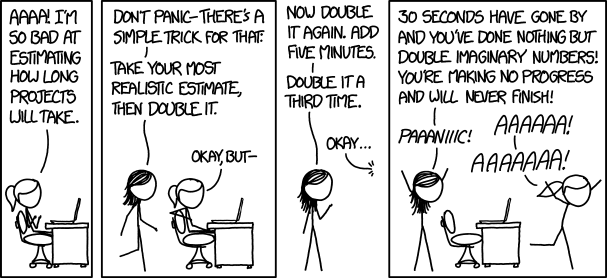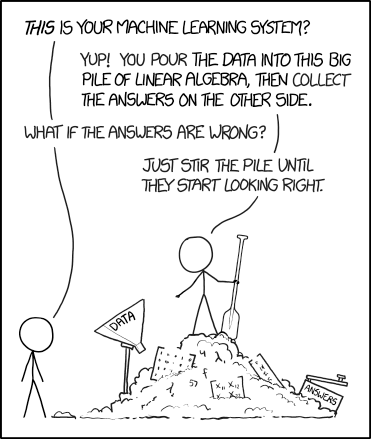I'm currently a PhD student of the IPN at McGill University.
In this project I aim to combine data from different modalities (fMRI, EEG, and behavioral) to understand more about sound and music processing.
My main focus in this project was to try to reproduce some of the results from a published paper starting form raw data.
The overall goal of the current project is to be able to organize, pre-process and do some basic analyses form a fMRI study.
In my current PhD project one of the end results should be a open multimodal behavioural and neuroimaging dataset characterizing healthy human auditory processing. It aims to allow researchers address individual differences in auditory cognitive skills across brain functions and structures, and it will serve as a baseline for comparison with clinical populations. To achieve that, our core objectives are to create a standardized framework with which to administer a battery of curated tasks. After acquiring the data from 70 young adults and we intend to share our framework, analysis pipelines, stimuli with linked descriptors, and metadata with the community through open data repositories. The dataset contains cognitive and psychophysical tasks, as well as questionnaires designed to assess musical abilities, speech, and general auditory perception. It also includes EEG and fMRI recorded during resting state, as well as naturalistic listening to musical stimuli and speech.
During this BrainHanks School project I wanted to understand what are the needs as a researcher to easily make use of public available data and learn the basics of pre-processing raw fMRI data.
I have good experience analyzing highly process data... but how you get there?
-
Raw data → BIDS formatted raw data
-
BIDS formatted raw data → BIDS formatted preprocess data
-
Basic Data quality control
-
Basic analysis
-
Implement other people analysis and reproduce results
(but it is a 2 and a half week project...)
The project will rely on the following technologies:
-
fmriprep
-
pandas
-
nipype
-
bids
-
bids-validator
-
nilearn
-
numpy
-
pathlib
-
jupiter lab
The first step was to search for candidates open datasets. I prioritized music/auditory related, as it is closer to my PhD project.
Next there is a list of interesting datasets I found, which I choose 2 to work during this course:
-
Forrest Gump: A very interesting study that use naturalistic stimuli to understand more about how our brain interacts with the real complex world. More information in the dedicated web-side. Here you can find the list of 29 publications that use the data made publicly available.
I was particularly interested in the first 20 subjects that perform a music task (Listening to music (7T fMRI, cardiac & respiratory trace).
I wanted to replicate the analyisis and findings of this paper.
N Type Tasks Comments 37 bold, T1w, T2w, angio, dwi, fieldmap Forrest Gump, objectcategories, movielocalizer, retmapccw, retmapcon, retmapexp, movie, retmapclw, coverage, orientation, auditory perception Maybe the most promising example -
Neural Processing of Emotional Musical and Nonmusical Stimuli in Depression: Study looking how people with depression process differently musical stimuli.
Same idea as the previous study, replicate results reported in this paper using the publicly available data.
N Type Tasks Comments 39 T1w, bold Music, Non-Music listening missing stims
-
A dataset recording joint EEG-fMRI during affective music listening.
N Type Tasks Comments 21 T1w, channels, eeg, events, bold GeneratedMusic, classicalMusic, genMusic01, genMusic02, washout, genMusic03 Could be very noisy EEG but also promising -
Decoding Musical Training from Dynamic Processing of Musical Features in the Brain.
N Type Tasks Comments 36 bh bold music listening Non standard format -
Neuroimaging predictors of creativity in healthy adults
N Type Tasks Comments 66 T1w, T2w, dwi, bold, fieldmap Rest Interesting to study resting state, good number of subjects -
Functional Connectivity of Music-Induced Analgesia in Fibromyalgia
N Type Tasks Comments 40 T1w, dwi, bold pre-control, pre-music, post-control, post-music healthy and Fibromyalgia patients listening to music -
Music BCI (006-2015)
N Type Tasks Comments 11 eeg 4 different music styles 3 instruments not much to extract maybe http://bnci-horizon-2020.eu/database/data-sets
Publication:
-
OpenMIIR - Music imagery information retrieval
https://github.com/sstober/openmiir
https://academictorrents.com/details/c18c04a9f18ff7d133421012978c4a92f57f6b9c
N Type Tasks Comments 10 eeg imagery very short musical exerts Existing Publications:
-
Sebastian Stober. Towards Studying Music Cognition with Information Retrieval Techniques: Lessons Learned from the OpenMIIR Initiative. In: Frontiers in Psychology Volume 8, 2017. doi: 10.3389/fpsyg.2017.01255
-
Sebastian Stober. Learning Discriminative Features from Electroencephalography Recordings by Encoding Similarity Constraints. In: Proceedings of 42nd IEEE International Conference on Acoustics, Speech and Signal Processing (ICASSP’17), Pages 6175-6179, 2017. doi: 10.1109/ICASSP.2017.7953343
-
Sebastian Stober; Thomas Prätzlich & Meinard Müller. Brain Beats: Tempo Extraction from EEG Data. In: 17th International Society for Music Information Retrieval Conference (ISMIR’16), 2016. available from: https://wp.nyu.edu/ismir2016/wp-content/uploads/sites/2294/2016/07/022_Paper.pdf
-
Sebastian Stober; Avital Sternin; Adrian M. Owen & Jessica A. Grahn. Deep Feature Learning for EEG Recordings. In: arXiv preprint arXiv:1511.04306 2015. available from: http://arxiv.org/abs/1511.04306
-
Avital Sternin; Sebastian Stober; Jessica A. Grahn & Adrian M. Owen. Tempo Estimation from the EEG Signal during Perception and Imagination of Music. In: 1st International Workshop on Brain-Computer Music Interfacing / 11th International Symposium on Computer Music Multidisciplinary Research (BCMI/CMMR’15), 2015. available from: http://bib.sebastianstober.de/bcmi2015.pdf
-
The neural basis of spoken word perception in older adults
N Type Tasks Comments 61 T1w, T2w, bold, events LISTEN02, REPEAT02, REPEAT01, LISTEN01 Interesting, need to read more about the data. there are 375 different monosyllabic words -
A dataset recorded during development of an affective brain-computer music interface:
N Type Tasks Comments 19-10-9 channels, eeg, events music listening and reported arousal and valance Low subj number but interesting data -
An EEG dataset recorded during affective music listening
N Type Tasks Comments 31 channels, eeg, events music listening Very littel information about what files where use https://openneuro.org/datasets/ds002721/versions/1.0.1
Possible article:
-
Sherlock_Merlin waiting bids validator
N Type Tasks Comments 37 mri listen and see movie (A/B groups) Very interesting, stimuli are provided -
Milky-Vodka - (2 different stories )
N Type Tasks Comments 54 T1w, bold, events Milky, Synonyms, Scrambled, Vodka stims available, -
Audiovisual Learning MEG Dataset
N Type Tasks Comments 30 coordsystem, channels, events, meg The auditory and visual stimuli were 12 Georgian letters and 12 Finnish phonemes mapping things? -
Auditory localization with 7T fMRI
N Type Tasks Comments 10 T1w, PD, T2star, dwi, bold, events, fieldmap rest, auditory, TODO: full task name for rest, TODO: full task name for auditory need to be down sampled -
FFR ?.
https://www-jneurosci-org.proxy3.library.mcgill.ca/content/37/4/830
-
Go-nogo categorization and detection task
N Type Tasks Comments -
A multi-modal human neuroimaging dataset for data integration: simultaneous EEG and MRI acquisition during a motor imagery neurofeedback task
N Type Tasks Comments 10 T1w, eeg, bold eegNF, fmriNF, motorloc, eegfmriNF, MIpre, MIpost Not interested -
TUH EEG Corpus Too big for the 3 weeks.
https://www.isip.piconepress.com/projects/tuh_eeg/html/downloads.shtml
-
Dataset: rsfMRI before and after one session EEG NF vs Sham NF
https://openneuro.org/datasets/ds001408/versions/1.0.3
-
Data relating "Alpha/beta power decreases track the fidelity of stimulus-specific information"
-
Real-time EEG feedback on alpha power lateralization leads to behavioral improvements in a covert attention task
-
EEG meditation study
-
EEG study of the attentional blink; before, during, and after transcranial Direct Current Stimulation (tDCS)
-
Simultaneous EEG-fMRI - Confidence in perceptual decisions
N Type Tasks Comments 24 T1map, bold, events, eeg motion direction of random dot kinematograms -
Audiocue walking study
-
Auditory and Visual Rhythm Omission EEG
-
Auditory and Visual Oddball EEG-fMRI
N Type Tasks Comments 17 T1w, inplaneT2, bold, eeg, events auditory oddball with button response to target stimuli, visual oddball with button response to target stimuli
I also find some very interesting datsets that I was not able to access directly and in the period of 3 weeks I was still waiting for them.
I was a little frustrated with the process, making me realize how important is real Open Data.
-
DEAP: A Database for Emotion Analysis Using Physiological Signals:
website: [https://www.eecs.qmul.ac.uk/mmv/datasets/deap/]
paper: [https://www.eecs.qmul.ac.uk/mmv/datasets/deap/doc/tac_special_issue_2011.pdf]
(Not Accessible without explicit permission, which we are missing for no)
At the end of this project, we have:
-
Scrips to pre-process the data using fmriprep in a cluster (HERE and HERE).
-
fmriprep report on the pre-processing (HERE).
-
Basic processing of 1 subject (HERE) with some need to be improve analysis.
-
Download multiple interesting datasets (local and to the server)
-
fMRI studyforrest https://openneuro.org/datasets/ds000113/versions/1.3.0
-
fMRI Neural Processing of Emotional Musical and Nonmusical Stimuli in Depression https://openneuro.org/datasets/ds000171/versions/00001
-
EEG An EEG dataset recorded during affective music listening https://openneuro.org/datasets/ds002721/versions/1.0.1
-
EEG-fMRI A dataset recording joint EEG-fMRI during affective music listening https://openneuro.org/datasets/ds002725/versions/1.0.0
-
-
Explore fMRI datasets
-
Explore EEG datasets(Not enough time) -
Replicate results for each dataset.(Not enough time)-
fMRI https://openneuro.org/datasets/ds000113/versions/1.3.0(data need pre-processing and the dataset was not fully BIDS compatible) -
fMRI https://openneuro.org/datasets/ds000171/versions/00001
-
Preprocess data.
-
Do some basic visualizations.
-
Do connectivity and activation analysis mus/no-mus stimuli (IN Progress)
-
Reproduce figures from the paper(Not enough time)
-
-
EEG https://openneuro.org/datasets/ds002721/versions/1.0.1(Not enough time) -
EEG-fMRI https://openneuro.org/datasets/ds002725/versions/1.0.0(Not enough time)
-
-
Extract commune information from the different datasets(Not enough time) -
Analyse data coming from the different datasets together(Not enough time) -
Proper code documentation and add necessary comments
-
Create and share conda env.
-
Clone the repo to your computer:
git clone https://github.com/brainhack-school2020/BHS-AuditoryMultimodal.git -
Install fMRI prep using this instructions
-
Download and preprocess the data using these scripts (you can grab a coffee or two... these may take a while).
-
Create a virtual-env
python3 -m venv bhs-auditory -
Install requirements
pip install -r requirements.txt -
Open the notebook
jupyter lab BHS_AuditoryMultimodal-ds000171.ipynb
After the multiple problems I found trying to process the data, reproduce the analyses, and limitations imposed by the missing of information form the dataset I am more aware of what I will need to do to efficiency share my data/analyses in the near future.
Don't be that researcher...


